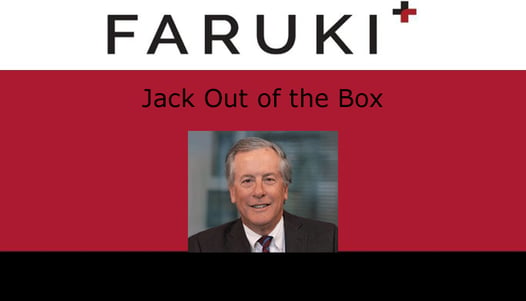- February 12, 2024
- Jack Greiner
- Jack Out of the Box
 The headline does not refer to RFK Jr.'s struggles at the ballot box. Rather, this column concerns his loss in a New Hampshire Federal District Court. Kennedy's effort to have that court exercise jurisdiction over his defamation suit failed out of the gate.
The headline does not refer to RFK Jr.'s struggles at the ballot box. Rather, this column concerns his loss in a New Hampshire Federal District Court. Kennedy's effort to have that court exercise jurisdiction over his defamation suit failed out of the gate.
Kennedy filed his libel suit in a New Hampshire state court against David Vickery. Mr. Vickery had written an article in the Daily Kos on August 29, 2020. The article concerned a rally of “Corona Truthers," who had gathered in Berlin to protest efforts undertaken by Angela Merkel's government to stop the spread of the corona virus. In his speech at the rally, Kennedy warned against the “totalitarianism" of the Merkel government. Referring to the famous Berlin speech of his uncle JFK, Kennedy said “Today Berlin is once again the front against totalitarianism."
Two-and-one-half years later, on April 19, 2023, Kennedy announced his candidacy for President of the United States. The following month, Kennedy sent Vickrey a letter claiming the article on the Daily Kos website defamed him. Kennedy threatened to sue in the Southern District of New York if Vickrey failed to provide a monetary settlement of Kennedy's claim. At some point after he sent the letter, it must have dawned on Kennedy that he was outside the New York statute of limitations. Demonstrating some resourcefulness, Kennedy filed the suit in New Hampshire, hoping to take advantage of New Hampshire's three-year statute of limitations.
The problem that Kennedy ran into immediately was that neither he nor Vickery had any connection to New Hampshire. Kennedy is a New York resident, with a San Diego mailing address. Vickery lives and works in Maine. Vickery asked the court to dismiss the action for lack of personal jurisdiction. Vickery argued that he did not have minimum contacts with new Hampshire to justify a New Hampshire court to exercise jurisdiction over him.
Kennedy argued that when he published the article, Vickrey “specifically targeted voting residents of New Hampshire, in order to derail Mr. Kennedy's Presidential campaign." In Kennedy's view, that constituted a specific effort by Vickery to avail himself of the privilege of doing business in New Hampshire. But this argument was derailed by the timeline. Vickery published his article more that two years before Kennedy announced his run for the presidency. As the Court noted, “the article could not have been intended to adversely impact Kennedy's standing as a presidential candidate or, more specifically, his performance in New Hampshire's 2024 presidential primary election."
Kennedy tried to dodge this inconvenient fact by asserting that “as soon as Mr. Kennedy announced his primary challenge, Vickrey reshared and republished his defamatory article." But Kennedy cited to no instances where Vickery had republished the article. His only citation was to the original article. But as the court noted, Kennedy's brief seemed unmoored to facts. At one point, Kennedy argued that Vickrey's allegedly defamatory article “prompted the Daily Kos to actively solicit New Hampshire residents to fund Mr. Vickrey's legal defense of the instant action due to this New Hampshire focus." But the citations Kennedy relied on in support simply did not establish this claim.
Plaintiffs engage in forum shopping for a host of reasons – they may be looking for a favorable judge, or, as in this case, an opportunity to beat the statute of limitations. But those plans are almost certain to fail when neither the plaintiff nor the defendant have anything to do with the forum.
